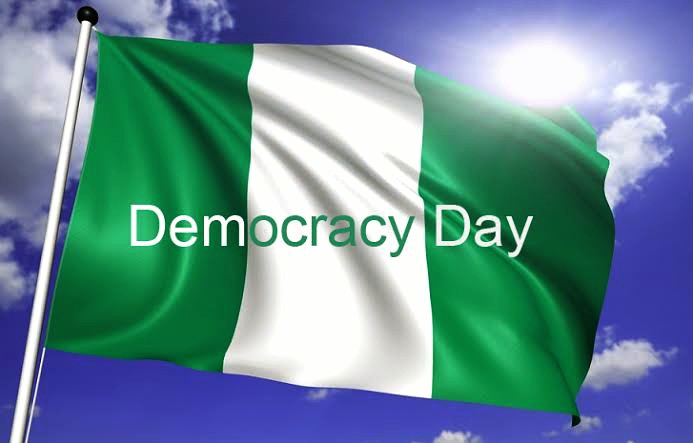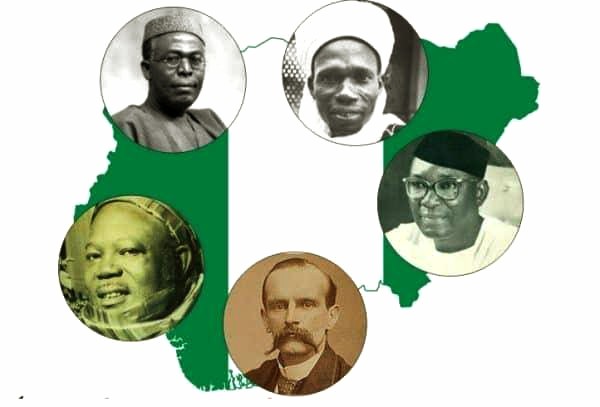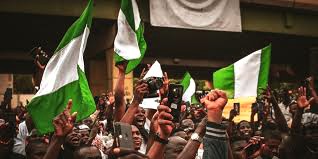
Democracy Day in Nigeria

Democracy Day in Nigeria, celebrated annually on June 12, marks a significant moment in the nation’s political history. It commemorates the democratic elections of June 12, 1993, which were annulled, leading to widespread unrest and a pivotal shift toward democracy. This day symbolizes Nigeria’s journey toward democratic governance and the struggles endured to achieve it. In this article, we will go into the historical context, significance, and the history of Democracy Day in Nigeria, highlighting the events, challenges, and milestones that have shaped this national celebration.
Historical Context

To understand the importance of Democracy Day, it is essential to explore the historical backdrop of Nigeria’s political landscape. After gaining independence from British colonial rule on October 1, 1960, Nigeria experienced a series of military coups and authoritarian regimes that disrupted democratic processes. By the early 1990s, the desire for democratic governance had reached a crescendo.
The 1993 Elections
The presidential election on June 12, 1993, marked a landmark event in Nigeria’s political history. It was the first election in a decade and was widely considered the freest and fairest election in the nation’s history. Moshood Kashimawo Olawale (MKO) Abiola, a businessman and philanthropist, emerged as the presumed winner. However, the military government led by General Ibrahim Babangida annulled the election results, citing electoral irregularities without substantial evidence. This annulment sparked nationwide protests and civil unrest.
Significance of June 12

June 12 holds profound significance as it represents the collective aspiration of Nigerians for democratic governance and the rejection of authoritarian rule. The annulled election of 1993 became a rallying point for pro-democracy movements and human rights advocates.
The Struggle for Recognition
The struggle for the recognition of June 12 as Democracy Day proved arduous and met resistance from successive military regimes. MKO Abiola’s arrest and subsequent death in custody further galvanized the pro-democracy movement. With the end of military rule and the beginning of the Fourth Republic in 1999, Nigeria began to transition to democratic governance.
Establishment of Democracy Day

Initially, Nigerians celebrated Democracy Day on May 29, marking the day the military handed over power to a civilian government in 1999. However, many Nigerians felt that June 12, 1993, better represented the nation’s democratic aspirations and sacrifices.
The Shift to June 12
In 2018, President Muhammadu Buhari officially declared June 12 as the new Democracy Day, in honor of MKO Abiola and the significance of the 1993 elections. This change symbolized the historical importance of the date and the struggles endured by Nigerians in their quest for democracy.
Celebrations and Observances

Democracy Day features various activities, including official ceremonies, public addresses, cultural events, and reflections on Nigeria’s democratic journey. It honors the memory of those who fought for democracy and evaluates the progress made in democratic governance.
Government Ceremonies
The federal and state governments organize events to commemorate the day. These include presidential addresses, where the sitting president reflects on the state of the nation and outlines the government’s achievements and future plans. Additionally, they bestow awards and honors upon individuals who have contributed significantly to promoting democracy and human rights in Nigeria.
Public Participation
Public participation plays a crucial role in Democracy Day celebrations. Citizens engage in various activities, including marches, lectures, and discussions, to express their views on the state of democracy in the country. The day also serves as an opportunity for civil society organizations to advocate for democratic reforms and greater accountability in governance.
Challenges and Criticisms

While Democracy Day serves as a time for celebration, it also prompts critical reflection on the state of democracy in Nigeria. Despite significant progress, the country faces numerous challenges, including corruption, electoral malpractice, and political violence.
Electoral Integrity
Ensuring free and fair elections remains a significant challenge. Instances of electoral fraud, voter intimidation, and violence have marred several elections since the return to civilian rule. Strengthening electoral institutions and processes is crucial for consolidating democracy.
Corruption
Corruption continues to undermine democratic governance in Nigeria. Efforts to combat corruption have yielded mixed results, with some progress being made, but significant challenges remain. Addressing systemic corruption and enhancing the effectiveness of anti-corruption agencies requires political will.
Socioeconomic Issues
Democracy in Nigeria also faces hindrances from socioeconomic challenges such as poverty, unemployment, and inadequate infrastructure. These issues often exacerbate political instability and undermine public confidence in democratic institutions. Addressing these socioeconomic challenges is essential for sustaining democracy.
The Role of Civil Society

Civil society organizations play a vital role in promoting and sustaining democracy in Nigeria. These organizations advocate for human rights, electoral reforms, and good governance. Their efforts have been instrumental in holding the government accountable and ensuring that democratic principles are upheld.
Advocacy and Activism
Civil society groups engage in advocacy and activism to influence public policy and promote democratic values. They organize campaigns, conduct research, and provide platforms for public discourse on critical issues affecting democracy.
Monitoring and Accountability
Civil society organizations also monitor government activities and electoral processes to ensure transparency and accountability. Their work in election monitoring, for instance, has helped to identify and address irregularities, contributing to the integrity of the electoral process.
Conclusion

Democracy Day in Nigeria goes beyond a public holiday; it symbolizes the nation’s resilience and commitment to democratic governance. It commemorates the sacrifices made by countless Nigerians in the struggle for democracy and serves as a reminder of the ongoing efforts needed to strengthen and sustain democratic institutions. As Nigeria continues to navigate its democratic journey, the significance of June 12 remains a powerful reminder of the enduring spirit of democracy and the collective aspiration for a better future.
Read more on Nigeria Democracy Day
Related Topics
Coat of Arms of Nigeria: A Symbol of Unity and Aspiration
Nigeria Police Force: Facts to Know About The Inspector General of Police (IGP)


